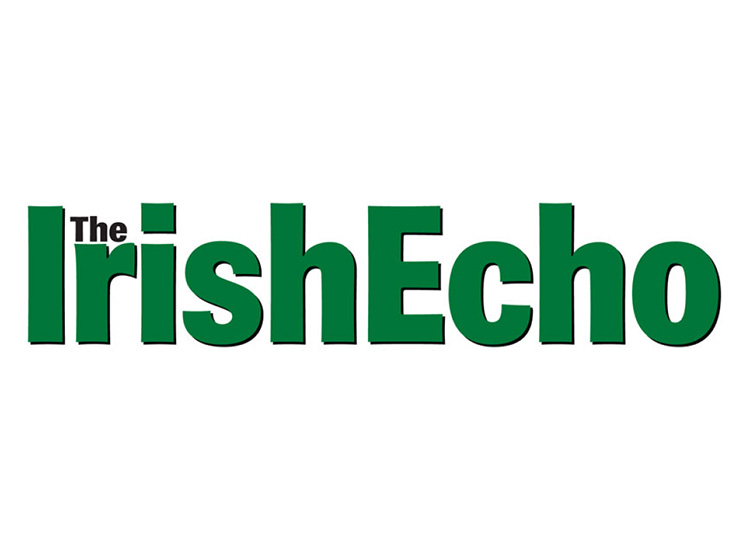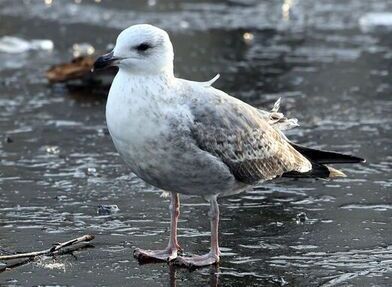Daoirí Farrell's new album is "True Born Irishman."
By Daniel Neely
In a plastic world of tuxedoed stage tenors and mystical Celtic warblers, it seems that the space for principled ballad singers is fast diminishing. Indeed, this state of things is precisely why the arrival of singer Daoirí Farrell’s new album is so welcome. “True Born Irishman,” Farrell’s second solo effort, is a lovely collection of songs that isn’t just thoroughly enjoying, it embodies a throwback ethic that is sadly perhaps not as common today as it once was.
Farrell, whose first name is properly pronounced “Derry,” is from Dublin and has had an interesting journey in music. Although he was exposed to the likes of Planxty and Frank Harte as a child, it wasn’t until the age of 16 that he became a singer, and the age of 23 that he started to perform. However, his growth in what one might consider a compressed timeframe has been impressive. He took a Master’s in Music Performance from the World Academy of Music in the University of Limerick and has performed widely in Europe, Canada, the U.S. and India, with the likes of Christy Moore, Dónal Lunny, Martin Hayes, Danú, and Dervish, to name a few. In addition, he won the senior English Singing All Ireland championship in Derry in 2013 and was the recipient of the Danny Kyle Award at Celtic Connections in 2015 with his band FourWinds (fourwindsirishmusic.com).
It’s an impressive resumé that matches his sharp abilities. I wasn’t aware of Farrell’s music until sometime last year when Lúnasa’s Kevin Crawford put a copy of his 2009 debut “The First Turn” in my hands. I found Farrell’s voice bracing, with a reediness that reminded me of Frank Harte’s. The phrasing and delivery I heard in his singing were complemented perfectly by the sparse arrangements which favored Farrell’s own bouzouki accompaniment. I also greatly admired the care Farrell put into the research behind the songs he sang – it’s a small but significant thing, but one that can make a big difference for many. It was just a truly wonderful album that folks should make the effort to dig it up.
I’ll extend the same level of praise to “True Born Irishman.” Farrell’s voice is again outstanding and a bit more seasoned, but whereas the earlier album favored a minimalist approach, here we hear more expansive band-like arrangements that give the whole great depth. Joining him are Tony Byrne (guitar), Robbie Walsh (bodhrán), James Mahon (uilleann pipes), Pat Daly (fiddle), Mike McGoldrick (low whistle & flute), Eoin Kenny (uillean pipes & low whistle), Paddy Kiernan (banjo), Alec Brown (cello), and Brian Dwyer (piano), all of whom realize Farrell’s impressive artistic vision.
The album begins with “Pat Rainey,” one of its strongest tracks. A modern composition by singer Fergus Russell, the song is about a member of a well-known traveler family and it sets a strong tone with a nicely fleshed out “band-style” arrangement that suits Farrell’s voice very well. Its particular approach to arranging is indeed characteristic of much of the album, including the hilarious “Fergie McCormack,” “Valley Of Knockanure,” and “Bogie’s Bonnie Belle,” all of which contextualize Farrell’s voice nicely.
This being said, some of the arrangements are even more expansive. For instance, “Van Dieman’s Land,” a song about penal servitude in Australia, is given a string section and piano accompaniment which, when combined with its lumbering tempo, imparts an epic quality and a not-too-subtle hint of Americana. Although it lacks bowed strings, “The Shady Woods Of Truagh,” which Farrell learned from Frank Harte and Cathal McConnell, proceeds with a similar sense of musical narrative. They’re both lovely tracks and add greatly to the album overall.
Farrell doesn’t completely eschew the minimalist, either. On “The Blue Tar Road,” from which the album draws its title, and “My Love is a Well,” Farrell sings to a simple uilleann pipe drone accompaniment. Perhaps coincidentally, both are compositions of Liam Weldon, whose music and life was the focus of Farrell’s thesis. Farrell does an inspired job to make them highlights here.
“True Born Irishman” is an outstanding album that people who love great singing will want to listen to and enjoy. Farrell’s approach will surely remind some of Andy Irvine, Paul Brady, and Christy Moore (and Planxty in particular) and others of singers like Frank Harte, Liam Weldon, Jimmy Crowley, and Dónal Maguire. It’s a fair assessment, as Farrell clearly draws inspiration from all of them. However, he’s simultaneously very much at home with his own up to date artistic vision, a thing that reminds me of some of his contemporaries, like the Murphy Beds and Lynched (who I understand will change their name and go by “Lankum” as of February 2017), who temper older ideas with new sounds in similar style. If you love ballads or singing in general, you’ll want to check this one out – highly recommended! For more info, visit daoiri.com.
Daniel Neely writes about traditional music each week in the Irish Echo.








